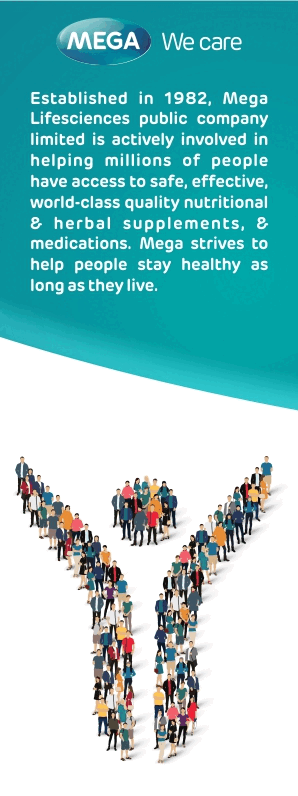Antenatal care service utilization among women who gave birth amid COVID-19 pandemic in Wollega Zone, West Ethiopia: Community based cross-sectional study
DOI:
https://doi.org/10.69614/ejrh.v14i4.554Keywords:
Antenatal care, Maternal health, COVID-19, EthiopiaAbstract
Background: Starting from the day it was declared as an outbreak the novel coronavirus disease (COVID-19) has been observed in almost all countries and costing the lives of hundreds of thousands. The counter effect of preventive measurements is believed to affect the health of many vulnerable populations including pregnant mothers. Hence, this study was aimed to assess antenatal care service utilization and associated factors among women who gave birth amid the pandemic in West Ethiopia.
Methods: A community-based cross-sectional study was carried out in selected districts of West Ethiopia. A systematic random sampling technique was used to select the study participants. Epi data version 3.1 and Statistical Package for the Social Sciences window (SPSS) version 25.0 were used for data entry and analysis respectively. Both bivariable and multivariable logistic regression was done.
Results: A total of 827 participants were involved in the study with a response rate of 97.87 %. The prevalence of antenatal cares service utilization among mothers who gave birth during the pandemic was 54.4 % with 95% (51.0, 57.6). Age of mother, residence, occupation of mother, educational level of the mother, fear related to spreading of COVID-19 in the community, fear of being infected, following government guidelines, using a facemask, covering face and mouth when coughing, and level of practice towards covid-19 prevention measures had a statistically significant association with antenatal cares service utilization.
Conclusion: The finding of the study revealed that there is a low antenatal care service utilization during the pandemic. Hence, health care providers should strengthen the integration of messages on COVID-19 prevention measures and health education with pregnancy risk, family planning and postnatal care. It is also advisable to start technology-based services to avert the transportation and related problems.
References
2. Cucinotta D, Vanelli M. WHO declares COVID-19 a pandemic. Acta bio-medica: Atenei Parmensis. 2020;91(1):157-160.
3. Lipsitch M, Swerdlow DL, Finelli L. Defining the epidemiology of Covid-19—studies needed. New England Journal of Medicine. 2020;382(13):1194-1196.
4. Riley T, Sully E, Ahmed Z, Biddlecom A. Estimates of the Potential Impact of the COVID-19 Pandemic on Sexual and Reproductive Health In Low-and Middle-Income Countries. International Perspectives on Sexual and Reproductive Health. 2020;46:73-76.
5. UNFPA. Continuing essential Sexual Reproductive, Maternal, Neonatal, Child and Adolescent Health services during COVID 19 pandemic2020.
6. Elston J, Cartwright, C, Ndumbi, P, & Wright, J. The health impact of the 2014–15 Ebola outbreak. Public Health. 2017;143(60-70).
7. Parpia A, Ndeffo-Mbah, ML, Wenzel, NS, & Galvani, AP. Effects of response to 2014–2015 Ebola outbreak on deaths from malaria, HIV/AIDS, and tuberculosis, West Africa. Emerging infectious diseases,. 2016;22(3).
8. The L. COVID-19: learning from experience. Lancet (London, England). 2020;395(10229):1011.
9. Logie C, Turan J. How Do We Balance Tensions Between COVID-19 Public Health Responses and Stigma Mitigation? Learning from HIV Research. AIDS and Behavior. 2020:1-4.
10. Organization WH. COVID-19: operational guidance for maintaining essential health services during an outbreak: interim guidance, 25 March 2020: World Health Organization;2020.
11. Kandel N, Chungong S, Omaar A, Xing J. Health security capacities in the context of COVID-19 outbreak: an analysis of International Health Regulations annual report data from 182 countries. The Lancet. 2020.
12. NEWS AJ. Tracking Africa's coronavirus cases: https://www.aljazeera.com/news/2020/04/tracking-africa-coronavirus-cases-200401081427251.html2020.
13. UNFPA. COVID-19: AGenderLens, PROTECTING SEXUAL AND REPRODUCTIVE HEALTH AND RIGHTS, AND PROMOTING GENDER EQUALITY: https://www.unfpa.org/sites/default/files/resource-pdf/COVID-19_A_Gender_Lens_Guidance_Note.pdf2020.
14. International Planned Parenthood Federation, COVID-19 pandemic cuts access to sexual and reproductive healthcare for women around the world, 2020: https://www.ippf.org/news/covid-19-pandemic-cuts-access-sexual-and-reproductive-healthcarewomen-around-world. 2020.
15. Adelekan T, Mihretu B, Mapanga W, et al. Early effects of the COVID-19 pandemic on family planning utilisation and termination of pregnancy services in Gauteng, South Africa: March–April 2020. Wits Journal of Clinical Medicine. 2020;2(2):145-152.
16. Wachamo D, Tegene Y, Tibeso A, Washo A. Sexual and Reproductive Health Services Utilization and Associated Factors among College Students at West Arsi Zone in Oromia Region, Ethiopia. The Scientific World Journal. 2020;2020.
17. Ethiopia DNf. Ethiopian Monitor: https://ethiopianmonitor.com/2021/05/27/ethiopia-records-19-covid-19-deaths/. May 28, 2021.
18. Kassie A, Wale A, Yismaw W. Impact of Coronavirus Diseases-2019 (COVID-19) on Utilization and Outcome of Reproductive, Maternal, and Newborn Health Services at Governmental Health Facilities in South West Ethiopia, 2020: Comparative Cross-Sectional Study. International journal of women's health. 2021;13:479-488.
19. Azene ZN, Merid MW, Muluneh AG, et al. Adherence towards COVID-19 mitigation measures and its associated factors among Gondar City residents: A community-based cross-sectional study in Northwest Ethiopia. PloS one. 2020;15(12):e0244265.
20. ICF. CSACEa. Ethiopia Demographic and Health Survey 2016. Addis Ababa, Ethiopia, and Rockville, Maryland, USA: CSA and ICF.2016.
21. Temesgen K, Wakgari N, Tefer B, et al. Maternal health care services utilization in the amid of 2 COVID-19 pandemic in West Shoa Zone, Central Ethiopia. 2020.
22. Muhaidat N, Fram K, Thekrallah F, Qatawneh A, Al-Btoush Aa. Pregnancy During COVID-19 Outbreak: The Impact of Lockdown in a Middle-Income Country on Antenatal Healthcare and Wellbeing. International Journal of Women’s Health 2020;12:1065–1073
23. Tadesse E. Antenatal Care Service Utilization of Pregnant Women Attending Antenatal Care in Public Hospitals During the COVID-19 Pandemic Period. International journal of women's health. 2020;12:1181.
24. Tekelab T, Chojenta C, Smith R, Loxton D. Factors affecting utilization of antenatal care in Ethiopia: a systematic review and meta-analysis. PloS one. 2019;14(4):e0214848.
25. Tsegaye B, Ayalew M. Prevalence and factors associated with antenatal care utilization in Ethiopia: an evidence from demographic health survey 2016. BMC Pregnancy and Childbirth. 2020;20(1):1-9.
26. Ousman SK, Mdala I, Thorsen VC, Sundby J, Magnus JH. Social determinants of antenatal care service use in Ethiopia: changes over a 15-year span. Frontiers in public health. 2019;7:161.
27. Mensa M, Belijo MN. Status of skilled birth attendance utilization and determinants among women of child-bearing age in Chencha Woreda, Gamo Gofa Zone, Southern Ethiopia, December 2016. Juniper Online J Case Stud. 2017;4(3):248-266.



